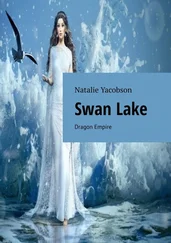Shane Legg - A Collection of Definitions of Intelligence
Здесь есть возможность читать онлайн «Shane Legg - A Collection of Definitions of Intelligence» весь текст электронной книги совершенно бесплатно (целиком полную версию без сокращений). В некоторых случаях можно слушать аудио, скачать через торрент в формате fb2 и присутствует краткое содержание. Год выпуска: 2007, Жанр: Прочая документальная литература, на английском языке. Описание произведения, (предисловие) а так же отзывы посетителей доступны на портале библиотеки ЛибКат.
- Название:A Collection of Definitions of Intelligence
- Автор:
- Жанр:
- Год:2007
- ISBN:нет данных
- Рейтинг книги:4 / 5. Голосов: 1
-
Избранное:Добавить в избранное
- Отзывы:
-
Ваша оценка:
- 80
- 1
- 2
- 3
- 4
- 5
A Collection of Definitions of Intelligence: краткое содержание, описание и аннотация
Предлагаем к чтению аннотацию, описание, краткое содержание или предисловие (зависит от того, что написал сам автор книги «A Collection of Definitions of Intelligence»). Если вы не нашли необходимую информацию о книге — напишите в комментариях, мы постараемся отыскать её.
A Collection of Definitions of Intelligence — читать онлайн бесплатно полную книгу (весь текст) целиком
Ниже представлен текст книги, разбитый по страницам. Система сохранения места последней прочитанной страницы, позволяет с удобством читать онлайн бесплатно книгу «A Collection of Definitions of Intelligence», без необходимости каждый раз заново искать на чём Вы остановились. Поставьте закладку, и сможете в любой момент перейти на страницу, на которой закончили чтение.
Интервал:
Закладка:
• “We shall use the term ‘intelligence’ to mean the ability of an organism to solve new problems …” W. V. Bingham [Bingham:37]
• “Intelligence is what is measured by intelligence tests.” E. Boring [Boring:23]
• “… a quality that is intellectual and not emotional or moral: in measuring it we try to rule out the effects of the child’s zeal, interest, industry, and the like. Secondly, it denotes a general capacity, a capacity that enters into everything the child says or does or thinks; any want of ’intelligence’ will therefore be revealed to some degree in almost all that he attempts;” C. L. Burt [Burt:57]
• “A person possesses intelligence insofar as he has learned, or can learn, to adjust himself to his environment.” S. S. Colvin quoted in [Sternberg:00]
• “… the ability to plan and structure one’s behavior with an end in view.” J. P. Das
• “The capacity to learn or to profit by experience.” W. F. Dearborn quoted in [Sternberg:00]
• “… in its lowest terms intelligence is present where the individual animal, or human being, is aware, however dimly, of the relevance of his behaviour to an objective. Many definitions of what is indefinable have been attempted by psychologists, of which the least unsatisfactory are 1. the capacity to meet novel situations, or to learn to do so, by new adaptive responses and 2. the ability to perform tests or tasks, involving the grasping of relationships, the degree of intelligence being proportional to the complexity, or the abstractness, or both, of the relationship.” J. Drever [Drever:52]
• “Intelligence A: the biological substrate of mental ability, the brains’ neuroanatomy and physiology; Intelligence B: the manifestation of intelligence A, and everything that influences its expression in real life behavior; Intelligence C: the level of performance on psychometric tests of cognitive ability.” H. J. Eysenck.
• “Sensory capacity, capacity for perceptual recognition, quickness, range or flexibility or association, facility and imagination, span of attention, quickness or alertness in response.” F. N. Freeman quoted in [Sternberg:00]
• “… adjustment or adaptation of the individual to his total environment, or limited aspects thereof … the capacity to reorganize one’s behavior patterns so as to act more effectively and more appropriately in novel situations … the ability to learn … the extent to which a person is educable … the ability to carry on abstract thinking … the effective use of concepts and symbols in dealing with a problem to be solved …” W. Freeman
• “An intelligence is the ability to solve problems, or to create products, that are valued within one or more cultural settings.” H. Gardner [Gardner:93]
• “… performing an operation on a specific type of content to produce a particular product.” J. P. Guilford
• “Sensation, perception, association, memory, imagination, discrimination, judgement and reasoning.” N. E. Haggerty quoted in [Sternberg:00]
• “The capacity for knowledge, and knowledge possessed.” V. A. C. Henmon [Henmon:21]
• “… cognitive ability.” R. J. Herrnstein and C. Murray [Herrnstein:96]
• “… the resultant of the process of acquiring, storing in memory, retrieving, combining, comparing, and using in new contexts information and conceptual skills.” Humphreys
• “Intelligence is the ability to learn, exercise judgment, and be imaginative.” J. Huarte
• “Intelligence is a general factor that runs through all types of performance.” A. Jensen
• “Intelligence is assimilation to the extent that it incorporates all the given data of experience within its framework … There can be no doubt either, that mental life is also accommodation to the environment. Assimilation can never be pure because by incorporating new elements into its earlier schemata the intelligence constantly modifies the latter in order to adjust them to new elements.” J. Piaget [Piaget:63]
• “Ability to adapt oneself adequately to relatively new situations in life.” R. Pinter quoted in [Sternberg:00]
• “A biological mechanism by which the effects of a complexity of stimuli are brought together and given a somewhat unified effect in behavior.” J. Peterson quoted in [Sternberg:00]
• “… certain set of cognitive capacities that enable an individual to adapt and thrive in any given environment they find themselves in, and those cognitive capacities include things like memory and retrieval, and problem solving and so forth. There’s a cluster of cognitive abilities that lead to successful adaptation to a wide range of environments.” D. K. Simonton [Simonton:03]
• “Intelligence is part of the internal environment that shows through at the interface between person and external environment as a function of cognitive task demands.” R. E. Snow quoted in [Slatter:01]
• “… I prefer to refer to it as ‘successful intelligence.’ And the reason is that the emphasis is on the use of your intelligence to achieve success in your life. So I define it as your skill in achieving whatever it is you want to attain in your life within your sociocultural context --- meaning that people have different goals for themselves, and for some it’s to get very good grades in school and to do well on tests, and for others it might be to become a very good basketball player or actress or musician.” R. J. Sternberg [Sternberg:03]
• “… the ability to undertake activities that are characterized by (1) difficulty, (2) complexity, (3) abstractness, (4) economy, (5) adaptedness to goal, (6) social value, and (7) the emergence of originals, and to maintain such activities under conditions that demand a concentration of energy and a resistance to emotional forces.” Stoddard
• “The ability to carry on abstract thinking.” L. M. Terman quoted in [Sternberg:00]
• “Intelligence, considered as a mental trait, is the capacity to make impulses focal at their early, unfinished stage of formation. Intelligence is therefore the capacity for abstraction, which is an inhibitory process.” L. L. Thurstone [Thurstone:24]
• “The capacity to inhibit an instinctive adjustment, the capacity to redefine the inhibited instinctive adjustment in the light of imaginally experienced trial and error, and the capacity to realise the modified instinctive adjustment in overt behavior to the advantage of the individual as a social animal.” L. L. Thurstone quoted in [Sternberg:00]
• “A global concept that involves an individual’s ability to act purposefully, think rationally, and deal effectively with the environment.” D. Wechsler [Wechsler:58]
• “The capacity to acquire capacity.” H. Woodrow quoted in [Sternberg:00]
• “… the term intelligence designates a complexly interrelated assemblage of functions, no one of which is completely or accurately known in man …” R. M. Yerkes and A. W. Yerkes [Yerkes:29]
• “… that faculty of mind by which order is perceived in a situation previously considered disordered.” R. W. Young quoted in [Kurzweil:00]
AI researcher definitions
This section lists definitions from researchers in artificial intelligence.
• “… the ability of a system to act appropriately in an uncertain environment, where appropriate action is that which increases the probability of success, and success is the achievement of behavioral subgoals that support the system’s ultimate goal.” J. S. Albus [Albus:91]
• “Any system … that generates adaptive behviour to meet goals in a range of environments can be said to be intelligent.” D. Fogel [Fogel:95]
• “Achieving complex goals in complex environments” B. Goertzel [Goertzel:06]
Читать дальшеИнтервал:
Закладка:
Похожие книги на «A Collection of Definitions of Intelligence»
Представляем Вашему вниманию похожие книги на «A Collection of Definitions of Intelligence» списком для выбора. Мы отобрали схожую по названию и смыслу литературу в надежде предоставить читателям больше вариантов отыскать новые, интересные, ещё непрочитанные произведения.
Обсуждение, отзывы о книге «A Collection of Definitions of Intelligence» и просто собственные мнения читателей. Оставьте ваши комментарии, напишите, что Вы думаете о произведении, его смысле или главных героях. Укажите что конкретно понравилось, а что нет, и почему Вы так считаете.












